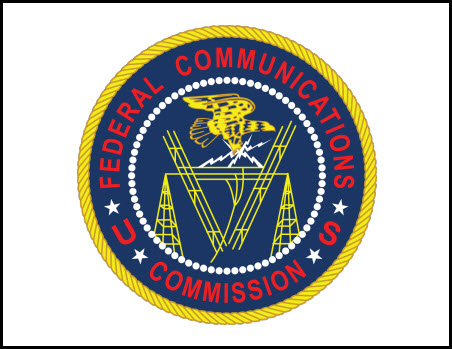FCC’s Robocall Order Sparks Contention, Lawsuit
The smarter way to stay on top of the multichannel video marketplace. Sign up below.
You are now subscribed
Your newsletter sign-up was successful

WASHINGTON — The Federal Communications Commission has finally issued its lengthy statement — plus scathing comments from the five commissioners — from last month's contentious decision regarding the Telephone Consumer Protection Act (TCPA) Omnibus Declaratory Ruling and Order.
Predictably, the final details, published last Friday (July 10), triggered even more critiques of the order, along with speculation as to how the restrictions will affect marketing, promotions and other outreach initiatives by media companies.
It also quickly triggered a court challenge. ACA International, an association of credit and collection professionals, on Friday filed a suit in the U.S. Court of Appeals for the D.C. Circuit seeking judicial review of the FCC's June 18 TCPA ruling. Other organizations are expected to seek an overturn of the FCC's ruling, according to legal observers following the case.
Although much of the concern about automated calling — including text messages and phonecalls to mobile devices — has involved the financial-services and healthcare industries, many observers voiced concern about the extent of the FCC's ruling. Online service providers, entertainment companies, sports teams and social media networks have already been hit with lawsuits by consumers who claim they improperly received robocalls or other prohibited contacts.
In its almost 200-page ruling, the FCC noted, "We have not viewed 'legitimate' businesses as somehow exempt from the statute." The agency said its goal is to “strengthen the core protections of the TCPA.” In the report, the FCC confirmed the notions that "Internet-to-phone text messages require consumer consent" and that “text messages are ‘calls’ subject to the TCPA.”
Each of the five FCC members issued a statement about the decision.
“There is no legal reason carriers shouldn’t offer their customers popular robocall-blocking solutions,” chairman Tom Wheeler said.
The smarter way to stay on top of the multichannel video marketplace. Sign up below.
FCC commissioner Jessica Rosenworcel, a Democrat, acknowledged “we have more work to do,” while the agency’s third Democrat, Mignon Clyburn, said, “The commission is striking a difficult-but-necessary balance with this item.”
The FCC's Republican members were far more verbose and hostile. Commission member Michael O’Rielly called the decision a "farce" that "penalizes businesses and institutions acting in good faith to reach their customers using modern technologies."
Commissioner Ajit Pai, in an extraordinarily long 12-page dissent, concluded that "the order is likely to leave the American consumer, not to mention American enterprise, worse off." Pai insisted that the FCC's action "dramatically expands the TCPA’s reach." He said that under the plan, "each and every smartphone, tablet, VoIP phone, calling app, texting app — pretty much any calling device or software-enabled feature" could become a target for a legal complaint.
Many analysts have pointed out that TCPA restrictions have opened the door to ambulance-chasing lawyers, who sue companies for perceived violations — often unintended or unknowingly — of the consumers' do-not-call preferences.
Some individual TCPA lawsuits settlement may soon "break the $100 million barrier, according to Bradley M. Baglien, Heather Zachary and D. Reed Freeman Jr. (all of the law firm Wilmer Cutler Pickering Hale and Dorr) in a Bloomberg Law analysis. In their paper, posted just before the FCC released its TCPA text, the attorneys warned that businesses "need to be vigilant about TCPA compliance."
“The commission’s TCPA decision will hurt legitimate businesses, seeking to provide consumers with the calls and text alerts they have requested, said Mark Brennan, a partner at law firm Hogan Lovells focusing on TCPA compliance and FCC policy issues. That is “completely contrary to the TCPA’s statutory language and Congress’s intent,” he said.
“The retroactive effect of the declaratory ruling will have plaintiffs’ counsel sprinting to the courthouse to file even more spurious class action lawsuits that will drive up costs and reduce services for all consumers," Brennan said. The FCC's decision "will give rise to new confusion as legitimate businesses struggle to comply with the FCC’s opaque language," he added.
Complaints about violations of the TCPA are the FCC's most numerous complaint category, with more than 215,000 grievances filed last year, according to the agency.
Contributor Gary Arlen is known for his insights into the convergence of media, telecom, content and technology. Gary was founder/editor/publisher of Interactivity Report, TeleServices Report and other influential newsletters; he was the longtime “curmudgeon” columnist for Multichannel News as well as a regular contributor to AdMap, Washington Technology and Telecommunications Reports. He writes regularly about trends and media/marketing for the Consumer Technology Association's i3 magazine plus several blogs. Gary has taught media-focused courses on the adjunct faculties at George Mason University and American University and has guest-lectured at MIT, Harvard, UCLA, University of Southern California and Northwestern University and at countless media, marketing and technology industry events. As President of Arlen Communications LLC, he has provided analyses about the development of applications and services for entertainment, marketing and e-commerce.

